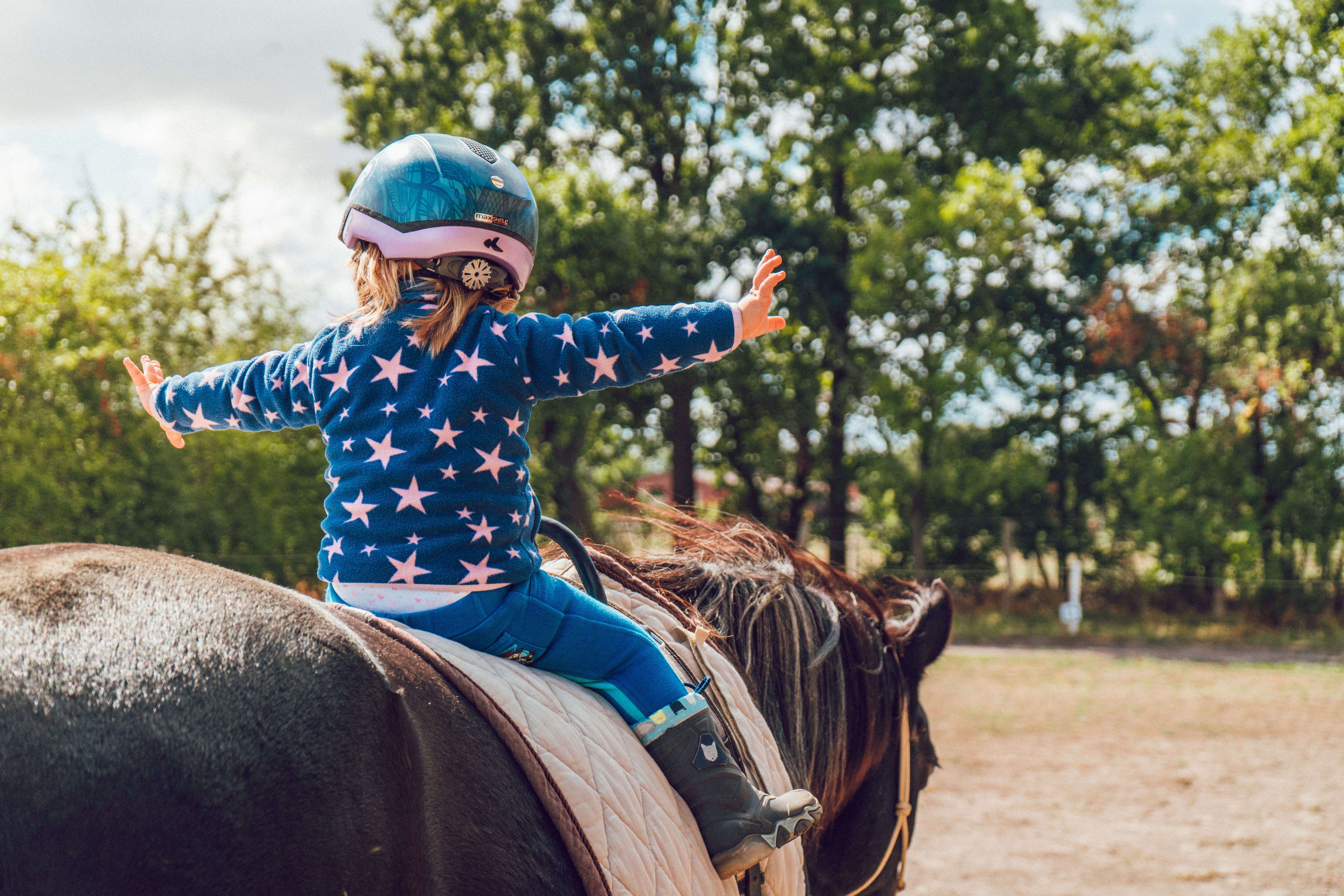
In the immortal words of Winston Churchill, "There is something about the outside of a horse that is good for the inside of a man."
Horses don't judge by appearance. They look past peoples' disabilities and recognize the emotions inside. Horses are more than friends and companions. They are mirrors of the soul.
Horseback riding provides physical therapy. Walking with the horse, touching the horse, grooming the horse provide emotional therapy. According to experts and people with disabilities alike, the benefits of equine therapy are indisputable.
Learn to "Walk" Through Riding
"Riding a horse is a 3-dimensional movement," said Marcy Laver, Director and President of the equestrian facility All Riders Up in Garnet Valley, Pennsylvania. "When the horse is moving, you're actually moving forward and back, up and down, and side to side all at once; all three dimensions. And that's similar to the same neuromuscular pathway simulation that is given when you walk. When you walk and swing your arms and move your hips side to side to walk, that same three-dimensional movement occurs. There is no gym or any machine in a gym that can give you what that horse can give you, which is the movement most similar to the human walk."
"Before I started riding horses, my father told me I was like a ragdoll because I had no muscle tone," Charlotte Fieldcamp, a rider with cerebral palsy, recalls. "If I hadn't started to ride at such an early age, I don't know if I would have walked."
Kids with Autism Speak First Words in the Saddle
"We have had autistic children come to us for riding lessons who never spoke before," said Sallie Dixon of Thorncroft in Malvern, Pennsylvania. She and her husband, Saunders, are co-directors of this equestrian facility. "After a couple of riding lessons, these kids gradually start to talk. The first thing they'll say is the pony's name. Then they go home and have their first dinner conversations, ever. That's another hallelujah story. Every day we have one."
"Some autistic people are afraid to talk because they're afraid of being judged," said Saunders. "They know that horses won't judge them."
You Don't Have to See to Ride
Carol Lorber's blind son Josh only feels free when he rides. "Sometimes, he looks like he's flying on that horse," said Carol. "It's great," said Josh.
Soothing the Soul
Grooming horses relaxes Jonathan Kendall, who has bipolar disorder. "I feel a connection to the horse, and it's something special," said Johnathan. "It does calm me down."
Jonathon Kendall's psychologist Dr. David Parrish says, "Being around horses can help people that have difficulty dealing with anxiety, particularly people who have anxiety related to the stigma that goes along with being viewed as different."
About the author:
For more than 20 years, David Block has worked as a documentary producer/director. His six documentaries have been televised and screened at film festivals, with two of them winning multiple film festival awards. David Block is also legally blind, but his partial blindness has never prevented him from excelling in a visual field such as filmmaking. For more on David, visit www.blindfilmmaker.com.
